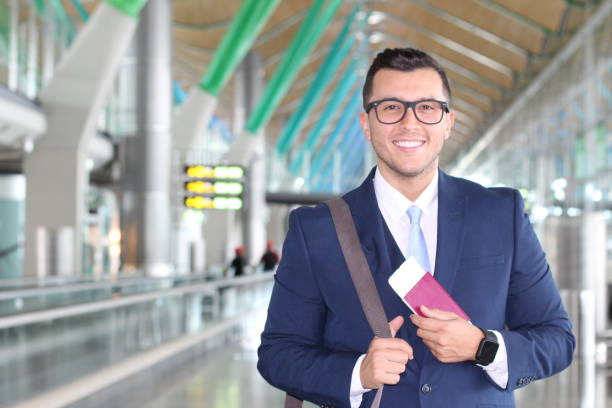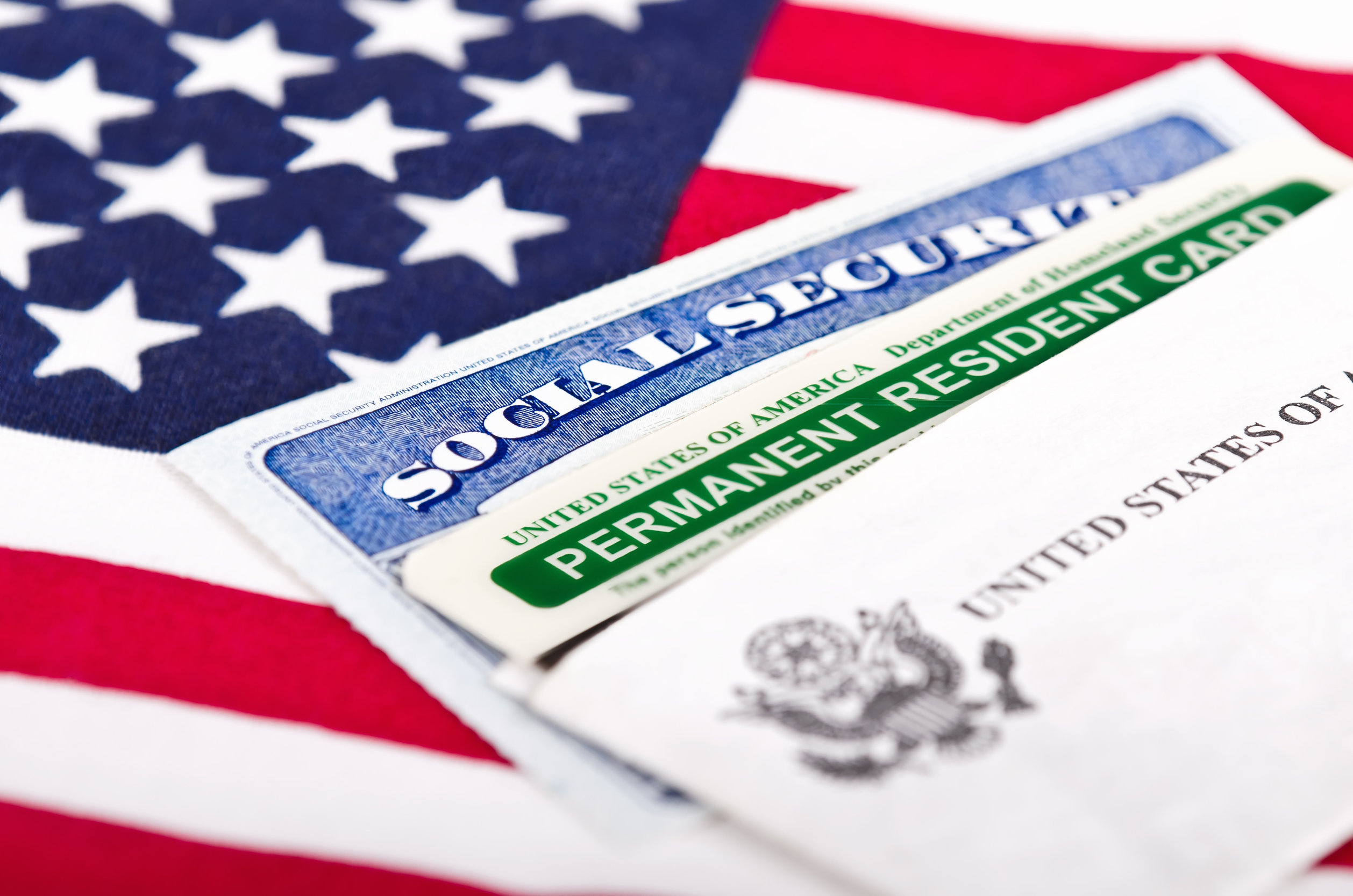Non-Immigration Lawyers for Visa Applications
- Dedicated Immigration and Non-Immigration Visa Attorneys
Non-Immigration Lawyers for Visa Applications
Dedicated Immigration and Non-Immigration Visa Attorneys
NON-IMMIGRANT VISAS
APPLYING FOR A VISA IN PHOENIX, ARIZONA
is easy with the Milovic Law Firm by your side. Hiring a visa attorney may be essential to a successful outcome. Whether you are located in Arizona, another state or even outside of the United States, we are dedicated and successful Phoenix immigration attorneys helping you achieve your journey to the United States.
U.S. immigration law offers a variety of non-immigrant (temporary) visas ranging from tourism, study, training, employment and even the opportunity to marry your U.S. fiancé(e).
Some temporary visas are more complex than others. A tourism visa may seem straightforward; however, certain factors may invite scrutiny by the immigration officer and affect your chance of approval.
Approaching Fiancé Visa Lawyers
A fiancé(e) visa should be approached with caution depending on the circumstances of your relationship and whether you have complied with the in-person meeting requirement or will need to apply for a waiver.
Getting in touch with a good fiancé(e) visa attorney can get you the desired visa quicker and with fewer complications.
Approaching H1B and E2 Visa Lawyers
Employment visas tend to be the most complex and require working with the Department of Labor (DOL) before you can receive USCIS approval. Hiring an H1B and E2 visa lawyer can increase your chances of getting an employment visa.
Regardless of your temporary visa need, consulting with a non-immigration lawyer is advisable to ensure the best possible outcome.
The list of available non-immigrant (temporary) visas is comprehensive and you will not find every available visa listed on our website. You can visit the Department of State website to review every available non-immigrant visa here.
If you have questions about a non-immigrant visa specific to your situation, contact the non-immigration lawyers at the Milovic Law Firm or send us a message with your inquiry.
Schedule a consultation with the Milovic Law Firm today to determine if you are eligible to apply for a temporary visa. The non-immigration attorneys at Milovic Law Firm are excited about supporting your journey to the U.S.
What We Cover
A Phoenix Immigration Attorney with Traditional Values & Modern Techniques. Find Out How Our Immigration Lawyer in Phoenix Can Help.

Fiancé(e): K-1 Visa
Your U.S. fiancé(e) may apply for a K-1 visa which allows you to enter the U.S. for a period of 90 days.
A fiancé(e) visa is solely for the purpose of marrying your U.S. citizen fiancé(e). After your marriage is finalized, your U.S. spouse may petition for your green card (permanent residence). The fiancé(e) visa permits a stay of 90 days in the U.S. and is not renewable. If you do not marry your U.S. citizen fiancé(e) within the allotted time period, you will lose lawful status and being accruing unlawful presence.
To be eligible for a fiancé(e) visa, both parties must be legally able to marry and display actual intent to marry within 90 days after arriving to the U.S. The parties must have met in person within two years prior to filing for the fiancé(e) visa, although a waiver of the meeting requirement is available. Read More…

Specialty Workers: H-1B Visa
The H-1B visa allows non-U.S. workers to temporarily work in the U.S. in a specialty occupation, requiring a higher degree or equivalent work experience.
To apply for the H-1B visa, the applicant must have a job offer with a prevailing wage from a U.S. employer. The prospective job must be in a specialty occupation related to the employee’s field of study, related to Department of Defense (DOD) research or the prospective employee may be a fashion model of distinguished merit. Read More…
USCIS requires a certified Labor Condition Application (LCA) from the Department of Labor (DOL) before you can apply for the H-1B visa. An LCA requires certain attestations by the employer relating to working conditions, wage, benefits and labor disputes.
Due to an annual quota of available H-1B visas and surplus of applicants each year, USCIS has created a lottery system for prospective applicants. Employers are required to register during the designated period to be selected through the lottery.
H-1B visas are initially approved for up to three years, and may generally be extended up to six years. The spouse and minor children (unmarried children under age 21) of the H-1B applicant may receive authorization to stay in the U.S. as derivative beneficiaries of their spouse or parent attaining temporary employment visa status.

Other Workers: H-2B Visa
The H-2B visa provides an opportunity for skilled or unskilled non-U.S. workers to work in the U.S. on a temporary or seasonal basis.
The H-2B temporary work visa is reserved for jobs that do not require a higher education degree, and the employer needs workers seasonally, temporarily, intermittently or for a one-time project. The applicant must be from an H-2B eligible country, have the right background for the job, and indicate an intent to return to their home country after the completion of the job.
USCIS requires a temporary Labor Certification from the Department of Labor (DOL) to approve the petition for a temporary work visa. A Labor Certification certifies there are not enough U.S. workers able, willing, qualified and available to perform the work. Additionally, employers must offer and be able to pay the prevailing wage and attest that employment of the non-U.S. worker will not adversely affect the wage and working conditions of U.S. workers similarly employed.
There is annual cap of H-2B visas issued each year, although some workers may not be subject to the limit. The H-2B visa program is divided into two fiscal periods, with each fiscal period receiving one half of the annual cap. Any unused visa from the first fiscal period may be carried over to the second fiscal period.
H-2B visas are granted up to the period of time authorized on the Labor Certification (based on employer’s need) and may be extended in increments of one year up to three years total. Individuals who have maxed out their H-2B are eligible to reapply after remaining outside the U.S for a period of three months before seeking readmission.
The spouse and minor children (unmarried children under age 21) of the H-2B applicant may receive authorization to stay in the U.S. as derivative beneficiaries of their spouse or parent attaining temporary employment visa status.

Trader/Investor Visa: E-1/E-2 Visa
The Treaty Trade or Investor visa provides nationals of selected countries with whom the U.S. has a treaty or other agreement to enter the U.S. to engage in international trading or investment activities.
Treaty traders (E-1) conduct substantial trade in goods, including but not limited to services and technology, mainly between the United States and their country of origin of which they are citizens or nationals.
Treaty investors (E-2) invest a substantial amount of money and direct the operations of a U.S. enterprise they have invested in, or are actively investing in.
To qualify for a trade visa, your business (you must have at least 50% ownership or be a key employee) should carry on substantial trade and a majority of the trade business should be with the U.S. and the treaty country.
To qualify for a treaty investor visa, you or other citizens from your country must have invested, or are in the process of investing, a substantial amount of capital in a bona fide U.S. business or enterprise.
Treaty or trade investors are allowed an initial stay of up to two years, and may request extensions in two year increments without any limit on the number of extensions.
The spouse and minor children (unmarried children under age 21) of the treaty trade or investor applicant may receive authorization to stay in the U.S. as derivative beneficiaries of their spouse or parent attaining temporary employment visa status.

Intracompany Transfer: L-1A/L-1B Visa
L-1A and L-1B visas enable U.S. employers to transfer employees from foreign affiliated offices, who either work in managerial positions or have specialized knowledge.
To enter the U.S. as a intracompany transferee, generally you must have worked for a U.S. affiliate company outside the U.S. for at least one year in the past three years prior to your application. Your employer must transfer you to its U.S. affiliate company as a manager, an executive or specialized knowledge worker. Your background and expertise need to match your job description for USCIS to approve your intracompany transfer.
The L-1A/L-1B classification also permits foreign employers to send executies to the U.S to establish a new office. Large U.S. companies may even obtain “blanket L-1 status” applications for frequent transferring of their non U.S. employees to their affiliated U.S. companies.

Visitor (tourist/business): B-1/B-2 Visa
Individuals who would like to enter the U.S. for tourism, medical treatment or a business trip may apply for a B/1 or B/2 visa.
B-1 visas are for the purpose of a temporary business trip (you may not work or operate a business in the U.S.), while B-2 visas allow entry into the U.S. for pleasure or tourism. The visas are often be issued in combination so that you may engage in approved activities under both visa categories.
Applying for a tourist/business visa may seem straightforward, but it is important that you demonstrate to the U.S. consulate or USCIS – the interviewing immigration officer and to Custom and Border Protection (CBP) your intent to return to your home country. Certain factors are helpful to demonstrate an intent to return, such as family ties, a permanent address and job in your country to which you will return.
Tourist/business visas may be issued for a period of five to ten years, but each entry to the U.S. is authorized for a stay of 90 days up to six months. Requests for an extended stay may be approved at the discretion of the immigration officer, although you may anticipate a Request for Evidence (RFE) to demonstrate your ongoing visa activities in the U.S.
Schedule Your Initial Consultation Today
Phoenix Non-Immigration Lawyer
Adjustment of Status vs. Consular Processing – What’s the difference?
Adjustment of Status
If you are already in the United States, you may be eligible to stay in the U.S. and apply for another immigration status – effectively adjusting your status. Adjusting your status in the U.S. has certain benefits, such as attending your interview at the USCIS field office of your home state. Certain eligibility requirements must be met to qualify for adjustment of status. For starters, you must have entered the U.S. lawfully and maintained your lawful status for the entire duration. (unless certain exception applies). Individuals who qualify to adjust their status may also qualify for work authorization.
Phoenix Immigration Lawyer
Consular Processing
If you are located outside of the U.S., or do not qualify to adjust your status in the U.S, you must undergo consular processing. In a nutshell, this means you will attend your immigration interview at a U.S. embassy or consulate in your home country. Once USCIS approves your initial immigrant petition, your case is transferred to the National Visa Center (NVC) for further processing. The NVC, component of the U.S. Department of State, is responsible for holding immigrant petitions until a visa becomes available and scheduling interviews at an embassy or consulate abroad.
Adjustment of Status vs. Consular Processing may depend on your eligibility criteria and personal preferences. Your individual factors determine which option you are eligible for, or what option better suits your interests. Cost and wait times may also factor into this decision. Each case may be distinctly different and it’s important to consult with an immigration attorney to understand your options.
Consult a non-immigration lawyer to understand your options. We have experienced visa lawyers at Milovic Law Firm, in Phoenix, who can help you with the best visa practices.
Dedicated Phoenix Immigration Attorney With Real Answers
At Milovic Law Firm, our Phoenix immigration attorneys are dedicated to deliver the highest quality immigration representation.
Dedicated Team
We are devoted to our clients & aggressively pursue every option available to you.
8 Years Experience
We're qualified and experienced to take on your immigration case.
5 Star Reviews
Our standard of excellence is fueled by a desire to protect your immigration rights.
Free Consultation
Schedule your consultation with our Phoenix immigration lawyers today!
How We Are Trusted. See What They Say About Us.
Let me start by saying that Maya is awesome. We engaged Maya to help with my naturalization application preparation and submission to USCIS.
J.M.
Phoenix, AZI had the most pleasant experience working with Maya through me legal proceedings. She was always very prompt in responding to the various questions I had through this process.
N.S.
Phoenix, AZMaya did an awesome job walking me through the steps of my case and helping to ensure that all of the documents were filed with the court in a timely manner.
S.M.
Mesa, AZImmigration Blog
The EB-5 Investor Visa
The United States offers one of the world’s best business-friendly environments and the largest customer base for foreign investors. This...
The O-1 Work Visa – Individuals with Extraordinary Ability
The O-1 Work Visa - Individuals with Extraordinary Ability The United States’ robust economy and focus on entrepreneurship attracts some...
From Green Card to U.S. Citizenship: The Naturalization Process
From Green Card to U.S. Citizenship: The Naturalization Process Have you recently obtained your permanent residency? Congratulations! With your green...
Free Consultation
Get in touch with us. Speak with an experienced imimmigration attorney today.




